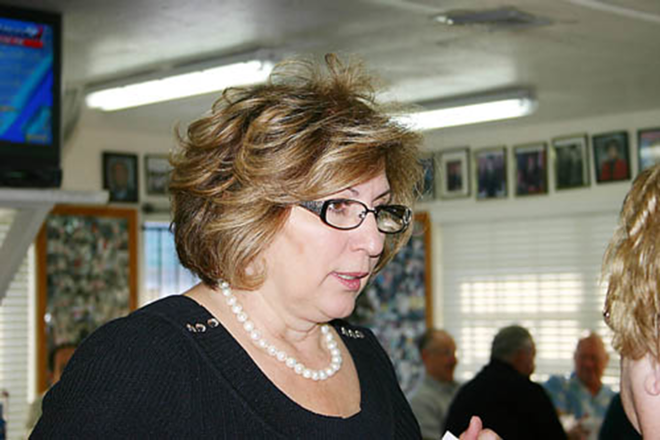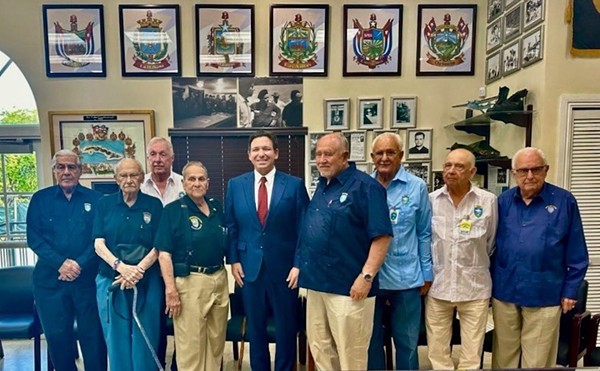
St. Petersburg City Council member Wengay Newton remembers the first paycheck he received as a young man; it was for $43, and it gave him a sense of purpose.
"It was mine. I was able to earn money. I wanted to work; I didn't want to take," Newton said.
But a number of youths get themselves into situations where they do decide to take — committing theft, or trespassing, for example — and that one-time mistake can wind up following them for the rest of their lives.
Last month, Newton brought forward a proposal that he hopes will give St. Petersburg youth a chance to avoid an arrest record. Called a civil citation program, it was inspired by an initiative already in place in Hillsborough and reflects a growing statewide awareness that there's got to be a better way to deal with first-time youthful offenders.
Hillsborough County Commissioner Kevin Beckner brought the civil citation idea to the board, following the creation last year of a Juvenile Justice taskforce. His version was based on a Miami-Dade County program that focused on intervention and rehabilitation of youthful offenders.
In June, Hillsborough law enforcement began issuing civil citations to juveniles suspected of a first-time offense from a list of nine misdemeanors, including minor theft and criminal mischief, simple battery, disorderly conduct, and simple possession of alcohol. If a youth is deemed eligible for the program, and a parent or guardian consents, he is expected to do things like apologize to victims and complete community service. Successful completion means no arrest record.
Youths are also evaluated to determine factors that might have influenced their decision to act out — issues at home, like alcohol or drug abuse, or absent parents. About 60 percent of cases involve a kid "doing something stupid," Beckner said. Thirty-seven percent of cases point to deeper issues, and about 3 percent of those arrested are actually "dangerous," showing signs of the "beginning of a criminal path."
With such assessment, Beckner said, authorities can assess at-risk youth early on and help "get them on the right track."
Sixty-one youths were referred to the civil citation program in June, and 36 were referred in July, according to the 13th Judicial Circuit administrative office. Out of 97 cases, 91 involved petit theft.
Gov. Rick Scott recently signed into law a state bill requiring the Department of Juvenile Justice to help implement and improve civil citation programs throughout the state. It went into effect on July 1.
Florida representative Janet Cruz (D-Tampa) sponsored a bill calling for the expunction of a "nonjudicial arrest record" of juvenile offenders who successfully complete a civil citation program. The bill stalled in the Criminal Justice Subcommittee, according to the Florida House of Representatives website.
Before being elected to office, Cruz worked with Julianne Holt, the public defender in Tampa. "It was in working in that office that I realized how valuable this program is to youth in Tampa," she said.
"This understands, I think, that kids sometimes don't often think about the consequences of getting in a fight, or petty theft of some sort," Cruz said. "It gives them a chance to understand the seriousness of breaking the law, and keeps them out of the system."
With county involvement in existing programs, and now a state law, it is unclear just what authority the city of St. Petersburg would have in implementing such a program on its own. The State Attorney's office has such a program in place, said Jim Kennedy, St. Petersburg Council chair. "City Council doesn't have jurisdiction," he says.
But Newton questions whether the system is really working. "For every excuse, we're locking up 1,800 youths," he said.
Council member Steve Kornell, a Pinellas school social worker, said that City Council should look at the whole picture. Not enough has been done in the areas of prevention and education, he says, and it's important to have highly qualified social workers involved to help the children who need it.
The city has invested about half a million dollars in the Juvenile Welfare Board of Pinellas County, and is conducting a management study of its youth programs, with the intent of crafting a youth services master plan. The newly formed youth services committee will address Newton's proposal as one of its first issues.
"You can't do everything in one year," Kornell said, "but you can work on it over time."
In St. Petersburg, 1,800 juvenile offenders were arrested in 2010, up from 1,500 in 2009. Between 120 and 140 youths are arrested in the city each month, often for minor offenses, costing the city about $200,000 a year.
Those numbers represent not only a waste of money, but a waste of time, he said, because of the manpower and resources city police officers have to use to arrest and book kids picked up for minor offenses.
Issuing more civil citations would save the city some of that money, which he said could be used to help give the city's children more positive opportunities.
It used to be the case that juvenile records were sealed, names were withheld, and a record didn't follow children when they reached the age defined as "legal adult" by a state. But such records have gotten less private since the 1990s; so-called youthful indiscretions are causing problems for minors looking for employment, scholarships or who intend to join the military.
"There is no juvenile record anymore," Cruz said. "A record is a record."
Newton has worked with area youths, some of whom are facing just that. A 15-year-old was caught fishing on someone else's property, and arrested for trespassing and fishing without a license, and later couldn't find a job. In a troubled economy and scarce job market, employers are looking for a completely clean background, Newton said. And a juvenile arrest record counts against an applicant.
Ray Tampa, president of the St. Petersburg branch of the NAACP, said that city governments should do more to create employment opportunities for youths. A lack of opportunities creates an atmosphere for more juvenile delinquency, he says.
In 2010, the unemployment rate for those ages 16 to 24 was 18.4 percent, compared with a 9.6 percent overall unemployment rate in the U.S.
"A kid who has a job, who has some money in his pocket, who can buy some of his own necessities, feels better about himself," Tampa said.
Tampa also said that cities should maintain recreational opportunities for their youth. Things like rec centers, parks and pools — when adequately maintained and supervised — are "things that allow kids to be kids," he says.
St. Petersburg has kept its parks and pools open. But Hillsborough County Commissioners voted 4-3 on July 27 to close a number of recreation centers with after-school programs.
Newton realizes that civil citations won't be able to save every kid, but more needs to be done to help the city's young people realize their full potential.
Otherwise, he said, "We're locking up our future."
















